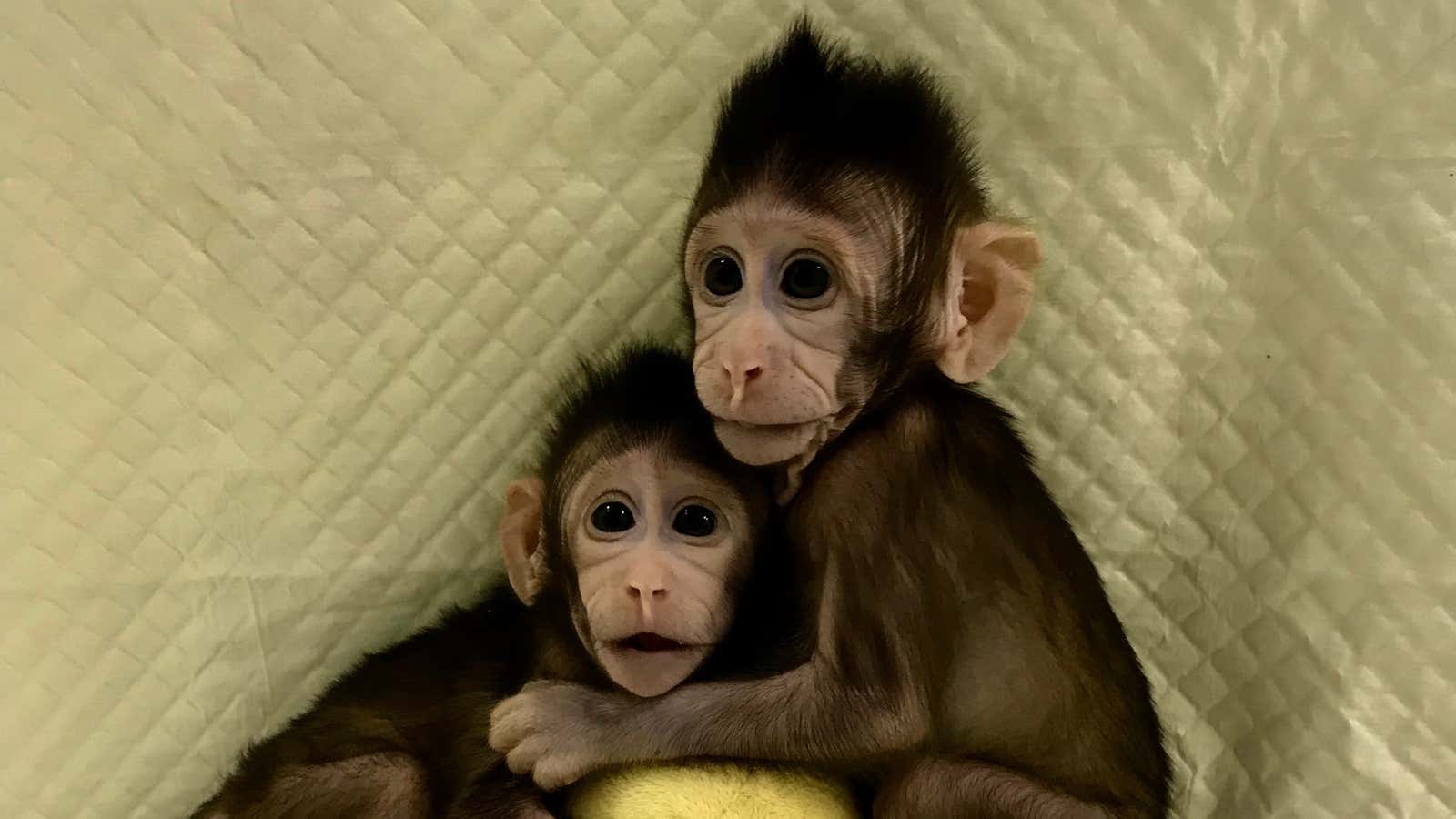Just by being born, two adorable long-tailed macaques have advanced scientific knowledge dramatically. They’ve only been around for about eight weeks and are being introduced to the world today (Jan. 24), yet these baby primate clones have already done more for the future of scientific research than most humans will do in their whole lives.
Zhong Zhong and Hua Hua, born six and eight weeks ago, respectively, at the Chinese Academy of Sciences Institute of Neuroscience in Shanghai, are the first primate clones made by somatic cell nuclear transfer (SCNT). This is the same method used to create Dolly the sheep two decades ago. The macaques—whose names together represent “Zhonghua,” meaning “the Chinese nation”—were presented to the world in a study in the journal Cell. Researchers say the macaque clones prefigure a not-so-distant future where labs will be able to create and conduct research on customizable populations of genetically uniform monkeys.
With identical populations, scientists can do more accurate research. They can isolate and manipulate specific genes in some animals and compare the results to previous versions that are reliably identical. “This will generate real models not just for genetically based brain diseases, but also cancer, immune, or metabolic disorders and allow us to test the efficacy of the drugs for these conditions before clinical use,” said senior author Qiang Sun, director of the Nonhuman Primate Research Facility at the Chinese Academy of Sciences Institute of Neuroscience, in a statement on the study.
Monkeys have been cloned in the past using a process called “embryo splitting,” but that method limits the number of replicates to just four. Theoretically, SCNT can produce unlimited clones. The SCNT method involves removing the nucleus from an egg cell and replacing it with another nucleus from differentiated body cells, and the reconstructed egg then develops into a clone of the creature who donated the nucleus. It wasn’t easy getting the process to work for monkeys; the scientists say they tinkered with the specifics of macaque SCNT for three years before alighting on a method that worked.
The birth of the cute monkey clones, while hopeful for medical research, raises ethical concerns, which the researchers acknowledge. The team says it adheres to international guidelines for animal research set by the US National Institutes of Health for this experiment and are encouraging other scientists to engage in debate with their work and the ethics of cloning in order to develop an acceptable, successful approach.
